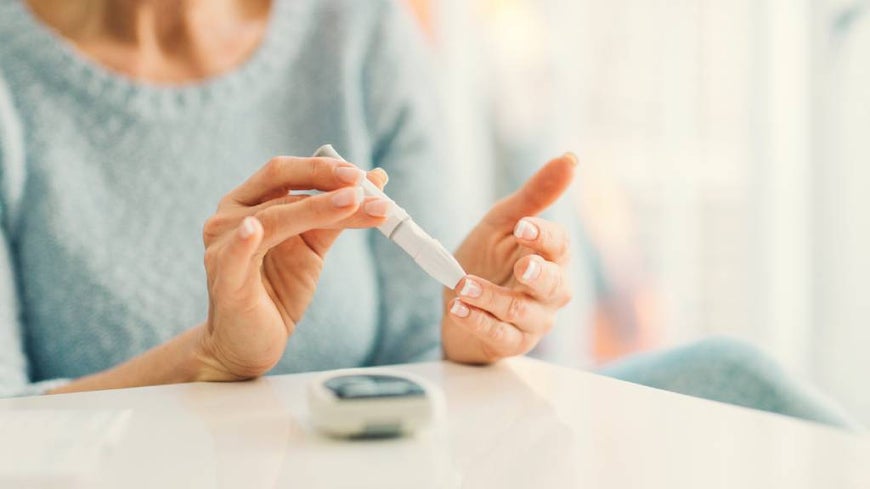5 things to know about type 2 diabetes

Written by Rachel Smith for Australian Seniors.
Many Australians are wandering around unaware they have type 2 diabetes, says consultant endocrinologist Dr Soji Swaraj from Concord’s Repatriation General Hospital in NSW. Here are his top 5 things to know about it.
#1: The statistics
An estimated 1.2 million Australians (4.9% of the total population) has diabetes, but about 50% of existing cases do not know they have it. Two million Australians have pre-diabetes, which does not have symptoms but puts you at a high risk of developing type 2 diabetes later in life. Pre-diabetes is your chance to prevent this disease, so catch it early with annual blood tests, and organise a care plan with your GP from the age of 40.
#2: Risk factors
The main risks are having a family history of type 2 diabetes, being overweight, being inactive, and having high blood pressure or heart disease. The major red flag that leads to diabetes is insulin resistance, where the insulin your body produces does not work so well, so the body releases more to compensate. The resulting high insulin levels can make it extremely easy to store fat and hard to lose it.
#3: Lifestyle changes
We have a ‘take a pill’ culture, but lifestyle changes are the number one treatment for pre-diabetes or diabetes.
- First, increase vegetable intake and variety. Wheat, rice, and sugar that put up insulin levels should be occasional treats only. Find out more about superfoods (plant-based and non plant-based) here.
- Second, be accountable for 10,000 steps or a 45-minute exercise session per day.
- Third, do six doses of 20 reps a day –120 reps in total – of squats, lunges, push-ups, sit-stand exercises, or bicep curls.
- Fourth, forget the scales: track your weight loss progress by measuring your waist at the navel every Saturday morning.
#4: The dangers of over-treatment
It is crucial to get individualised care, especially older diabetes patients who are at risk of over-treatment and hypos (hypoglycaemia, where blood sugar drops too low). Well-meaning doctors may try to aggressively lower your sugars to targets suitable for much younger people, but doing so may cause memory issues, or make you more prone to falls and breaking bones. If you are having blood sugars below 6, talk to your GP about reviewing your medications, especially any that cause low blood sugar.
#5: Medical advancements
Diabetes treatments have come a long way. Although finger-prick tests are still used to check blood glucose levels, we now have skin sensors and real-time readings via smartphone apps which may be good value when used occasionally to help monitor or even adjust treatment. We also have medication and injections that lower sugars while helping you lose weight. It may be worth checking with your doctor if these might be substituted for the diabetes drugs that can cause weight gain. Lifestyle changes such as food and exercise are usually used first for treatment before medication, depending on the severity.
3 Dec 2021